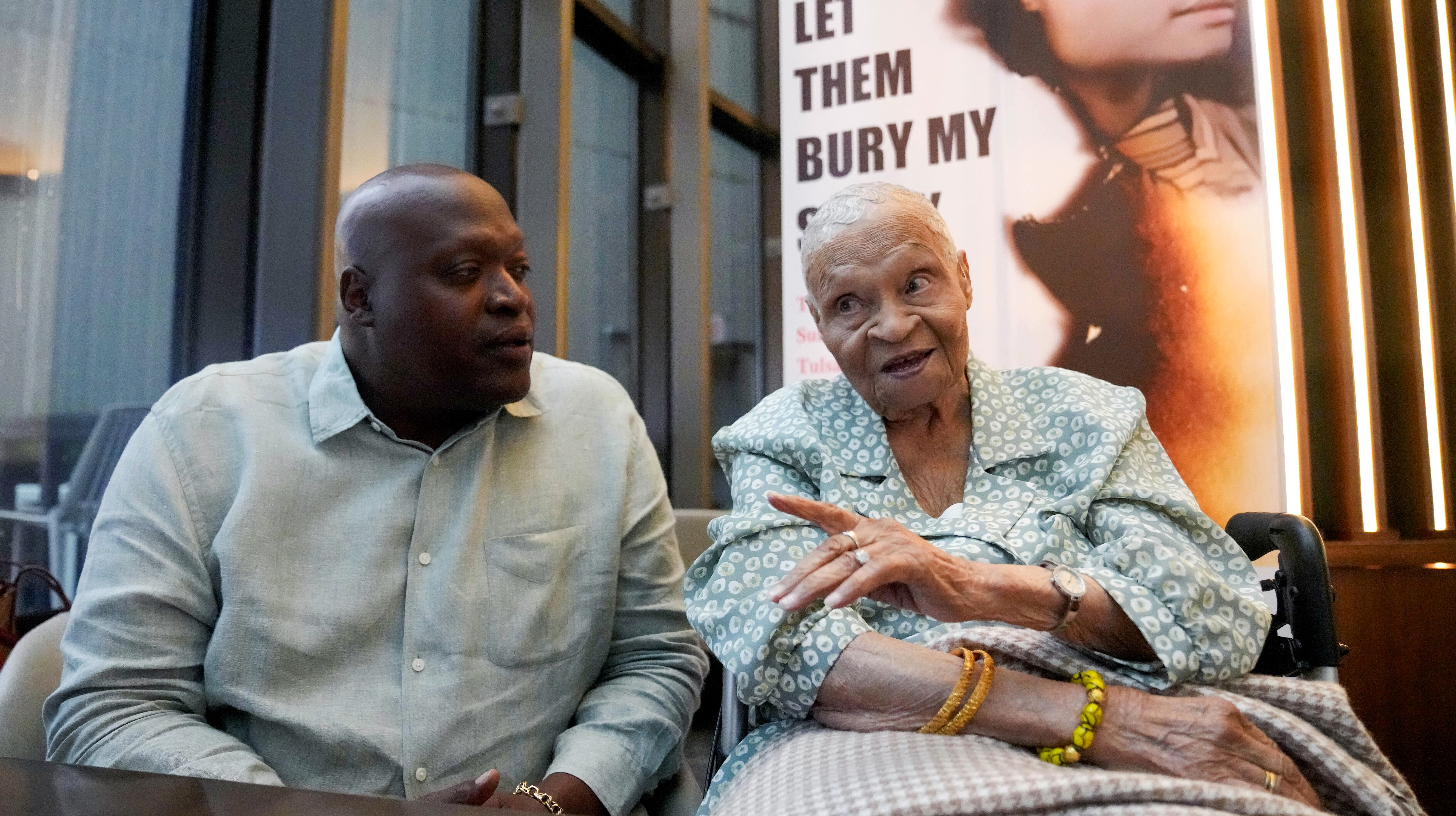(Bloomberg) —
Lawyers for the last three living survivors of the Tulsa race massacre of 1921 said they will appeal a decision to dismiss a lawsuit seeking reparations for the attack on what was known as Black Wall Street.
At a Monday press conference, an attorney for the plaintiffs — Lessie Benningfield Randle, 108, Viola Fletcher, 109 and Hughes Van Ellis Sr., 102 — said they would be appealing to the Oklahoma Supreme Court.
“We will not go quietly,” the survivors said in a statement read by Damario Solomon-Simmons. “We will continue to fight until our last breaths. Like so many Black Americans, we carry the weight of intergenerational racial trauma day in and day out.”
Judge Caroline Wall, a Tulsa county district court judge, on Friday dismissed the lawsuit with prejudice, which means the same claim can’t be refiled in that court. In a brief entry on the court docket, Wall said she was dismissing the case based on arguments from the city, regional chamber of commerce and other state and city officials.
It’s the latest setback in a decadesold effort by survivors as well as their families and allies to seek reparations for the May 1921 attack by a White mob on the Greenwood neighborhood of Tulsa, which was home to a thriving Black community and multiple Black-owned businesses. A coalition to explore reparations for the survivors was established in 2001, and previous litigation to establish redress has been unsuccessful.
Solomon-Simmons called the Friday decision a “hurtful blow to our quest for justice not just for Greenwood but also for Black people throughout this country.”
Plaintiffs, who include descendants of other survivors, first filed the latest lawsuit in 2020 on the grounds that the city of Tulsa and other defendants violated local public nuisance laws. Under Oklahoma law, a public nuisance is an act or omission that affects an entire community or neighborhood. Citing a public nuisance in a lawsuit is a tactic used by other cities and states to seek damages from opioid pharmaceutical companies. An amended version of the suit was filed in 2021, and again last September.
In the September filing, lawyers for Randle, Fletcher and Van Ellis called the attack “one of the worst acts of domestic terrorism in United States history since slavery” and said it completely destroyed Tulsa’s all-Black community of Greenwood.
In today’s dollars, the estimated economic loss of the homes and additional assets in the assault is over $200 million, according to a 2018 article in the American Journal of Economics and Sociology.
The case is Randle v. City of Tulsa, CV-2020-1179, Tulsa County District Court.
To contact the author of this story:
Kelsey Butler in New York at kbutler55@bloomberg.net
© 2023 Bloomberg L.P.








